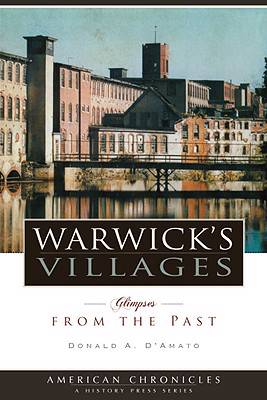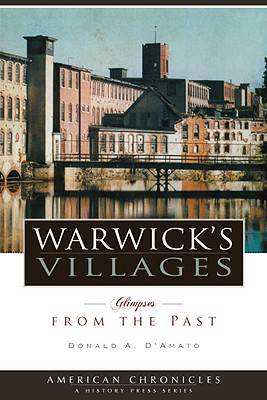
Bedankt voor het vertrouwen het afgelopen jaar! Om jou te bedanken bieden we GRATIS verzending (in België) aan op alles gedurende de hele maand januari.
- Afhalen na 1 uur in een winkel met voorraad
- In januari gratis thuislevering in België
- Ruim aanbod met 7 miljoen producten
Bedankt voor het vertrouwen het afgelopen jaar! Om jou te bedanken bieden we GRATIS verzending (in België) aan op alles gedurende de hele maand januari.
- Afhalen na 1 uur in een winkel met voorraad
- In januari gratis thuislevering in België
- Ruim aanbod met 7 miljoen producten
Zoeken
€ 30,95
+ 61 punten
Omschrijving
Since Samuel Gorton's first settlers on the Conimicut shore agreed to live without formal government, the villages of Warwick have been fiercely independent. Despite their individualism, however, their histories are inextricably bound. The ravages of King Philip's War left no village unscathed, as settlers lost their houses, livestock and even their lives. England's trade laws forced these seafaring people to smuggle rum out of Mill Cove, and the famous 1772 burning of the British Gaspee near Pawtuxet ignited the flame of protest across Rhode Island. Tracing the history of five villages, Warwick's beloved historian Donald D'Amato reveals how Rhode Island's second-largest city has retained the feel of a small, close-knit community.
Specificaties
Betrokkenen
- Auteur(s):
- Uitgeverij:
Inhoud
- Aantal bladzijden:
- 128
- Taal:
- Engels
- Reeks:
Eigenschappen
- Productcode (EAN):
- 9781596295995
- Verschijningsdatum:
- 1/02/2009
- Uitvoering:
- Paperback
- Formaat:
- Trade paperback (VS)
- Afmetingen:
- 152 mm x 224 mm
- Gewicht:
- 249 g

Alleen bij Standaard Boekhandel
+ 61 punten op je klantenkaart van Standaard Boekhandel
Beoordelingen
We publiceren alleen reviews die voldoen aan de voorwaarden voor reviews. Bekijk onze voorwaarden voor reviews.









